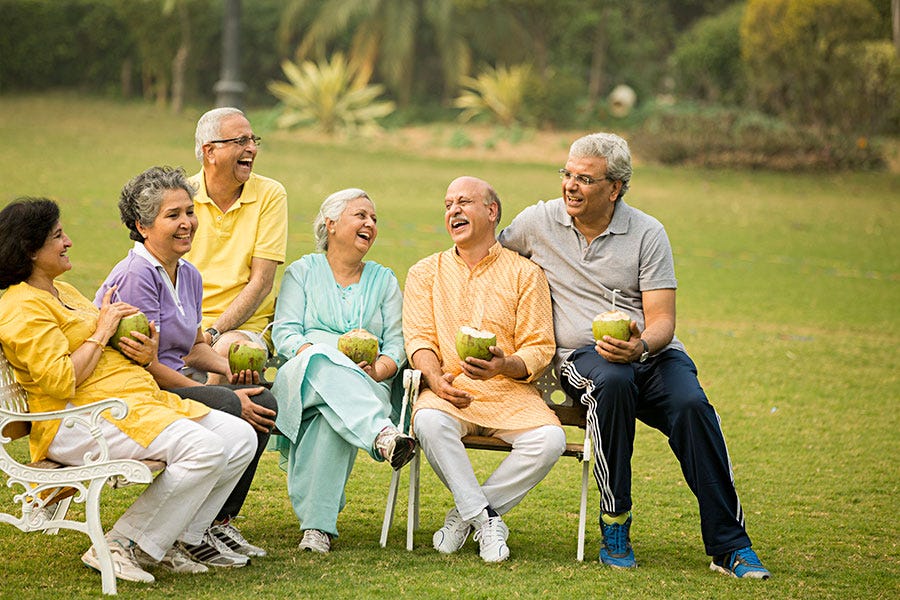
Elder Care Market in India
The eldercare market in India has been witnessing significant growth in recent years, driven by several factors including demographic shifts, changing family structures, and increasing life expectancy. As India’s population ages, the demand for eldercare services and solutions is expected to rise exponentially.
The eldercare market in India encompasses a wide range of services and solutions including assisted living facilities, nursing homes, home healthcare services, medical equipment, and technology-based solutions. There is also a growing trend towards holistic and integrated care approaches that focus on the overall well-being of the elderly, including physical, emotional, and social aspects.
Overall, with the increasing elderly population and changing socio-economic dynamics, the eldercare market in India presents significant opportunities for investors, healthcare providers, and service providers to innovate and cater to the evolving needs of the aging population.
Eldercare can be Delivered in 2 Ways –
I. Institutional Care:
(1) Senior Living
This segment caters to seniors who prefer to live in a communal environment while maintaining varying degrees of independence which includes —
a. Assisted Living: Offers assistance with daily activities such as bathing, dressing, and medication management while allowing residents to maintain some level of independence.
b. Independent Living: Provides housing options for active, self-sufficient seniors who desire a social community and access to amenities without the need for extensive assistance.
c. Old Age Homes: Facilities designed to accommodate seniors who may require more assistance with daily living activities or have health conditions that require monitoring.
d. Respite Care: Temporary care services that provide relief for primary caregivers, often for short-term stays.
e. Retirement Homes: Communities designed specifically for retirees, offering various amenities and social activities.
f. Elder Day Care: Provides daytime care and activities for seniors, allowing caregivers to work or take breaks during the day.
(2) Nursing Homes:
This segment caters to seniors with more complex medical needs who require around-the-clock care and supervision which includes —
a. Rehabilitation Centers: Facilities focused on helping seniors recover from illness, injury, or surgery through specialized therapies and medical care.
b. Memory Care Communities: Specifically designed for seniors with dementia or Alzheimer’s disease, offering specialized care and support.
c. PwD Care Communities: Provides tailored care for Persons with Disabilities (PwD), addressing their unique needs and challenges.
II. At Home Care
(1) Clinical
Services provided by healthcare professionals within the comfort of the individual’s home and includes —
a. Nursing Care: Skilled nursing services provided by registered nurses or licensed practical nurses to manage medical needs and provide ongoing care.
b. Palliative & Hospice Care: Specialized care focused on managing symptoms and providing comfort for individuals with serious illnesses or at end-of-life stages.
c. Disability and Memory Care: Tailored support for individuals with disabilities or cognitive impairments, including specialized care plans and assistance with daily living activities.
d. Physiotherapy: Rehabilitation services provided by physical therapists to improve mobility, strength, and function.
e. Technology-Enabled Services: Utilizes modern technology such as teleconsultation, e-pharmacy, and remote monitoring to deliver healthcare services and support.
(2) Non-Clinical
Services aimed at supporting daily living activities and maintaining independence at home.
a. Caretaking: Assistance with personal care tasks such as bathing, dressing, and grooming.
b. Homemaking: Help with household chores such as cooking, cleaning, and laundry.
c. Mobility Assistance: Aid with mobility devices and assistance moving around the home.
d. Housekeeping: General cleaning and upkeep of the home environment.
e. Nutrition: Assistance with meal planning, preparation, and dietary management.
Lifestyle and Recreation: With increasing purchase power among the elder care population Lifestyle and Recreation is an emerging sub segment in eldercare aiming to enrich the lives of elders. These solutions can be delivered as part of both Institutional care and At home care
(1) Lifestyle
Products and services aimed at enhancing seniors’ quality of life and promoting well-being and includes items such as massagers, grooming essentials, bathroom aids, and support splints & braces to aid in daily activities and improve comfort.
(2) Recreation
Activities and services focused on promoting social interaction, engagement, and enjoyment such as organizing social gatherings, outings, and recreational activities for seniors and tailored travel experiences and entertainment options catering to the interests and preferences of older adults.
Growth Drivers-
1.Growing Nuclear Families and Reducing Voluntary Caregivers: As India experiences a societal shift from joint family structures to nuclear families, there’s a decline in the availability of voluntary caregivers within households. Additionally, the migration of younger generations for employment opportunities further reduces support for the elderly. This trend fuels the demand for professional eldercare services, including home care and skilled nursing.
2.Growing NRI Population: The increasing number of Non-Resident Indians (NRIs) has led to many elderly parents being left without adequate support. NRIs become a key demographic with a high propensity to pay for quality care services for their aging parents.
3.Adoption of Technology: Elderly population today is more tech savvy than their previous generation and with the widespread availability of smartphones and user-friendly applications, seniors are leveraging technology to access healthcare services conveniently. This drives demand for eldercare solutions such as telemedicine, remote monitoring devices, and caregiver support platforms.
4.Government Support: The Indian government has recognized the growing need for eldercare services and has introduced initiatives like SAGE (Seniorcare Ageing Growth Engine) to support startups in this sector. Through funding assistance, regulatory frameworks, and recognition programs, the government aims to stimulate innovation and investment in eldercare solutions.
Deal Round Up:
Portea Medical —
In April 2024, Portea Medical raised $20 million through a rights issue as part of its preparations for an upcoming IPO. The company plans to issue over 69 million Series D1 compulsory convertible preference shares at an issue price of Rs 23.96 per share. Despite a decline in revenue in FY23, Portea remains a prominent player in the home healthcare sector, offering a range of services to over a million patients annually. This funding follows a Series A round in November 2023, where Portea secured Rs. 48 crore from Accel Partners and Ventureast to fuel its growth and expansion across India.Age Care Labs —
In April 2024, Age Care Labs raised $1.2 million from SIS Limited, with SIS acquiring a 4% stake in the company. This partnership aims to integrate elder care homes into SIS’s portfolio and leverage synergies between their businesses. SIS plans to upskill its staff in geriatric services and potentially enter the elder care sector. In October 2023, Age Care Labs secured $11 million in a pre-Series B round led by Rainmatter Capital and Gruhas, aiming to expand its presence, enhance its technology, and explore acquisition opportunities. With brands like Emoha and Epoch Elder Care, Age Care Labs offers a range of healthcare services for seniors and competes with various players in the market.Kites Senior Care —
Kites secured Rs 45 crore investment from Ranjan Pai’s MEMG Family Office Fund, with a total plan outlay of Rs 65 crore. Investors praised KITES’ scalable growth model and commitment to customer-centric care. The investment aims to expand operations in Bengaluru, Hyderabad, and Chennai, and three more Southern Indian cities, with a threefold increase in bed capacity to over 1,000. A portion will develop ‘SeniorShield’ tech platform. KITES aims to address the growing demand for geriatric care in India, a market valued at over $20 billion.Khyaal —
Khyaal, raised $4.2 million in a funding round co-led by 62 Ventures, SVQuad, and Inventus Capital Partners. Existing investors also participate. The funds will be used to expand current operations, explore new markets, and enhance services. Khyaal offers digital literacy, entertainment, financial services, and on-demand assistance tailored for seniors. Founded in 2020, the platform aims to engage, educate, and empower seniors.Genwise —
GenWise, raised $3.5 million in a seed round led by Matrix Partners India, with participation from DBR Ventures, Climber Capital, and angel investors. The funds will be used to launch an exclusive lifestyle app for the elderly. GenWise aims to bridge generational gaps through a personalized social platform. Founded in 2023, the app promises to simplify technology for the older demographic, offering features like a personal digital assistant, medication reminders, and tools for socialization.With the geriatric population set to grow substantially in the next decade, we expect At Center Care and Assisted Living to see significant growth and will also see more established players foray into this segment of the market. This will see the deployment of capital in this sector leading to infrastructure creation and upskilling of talent.

